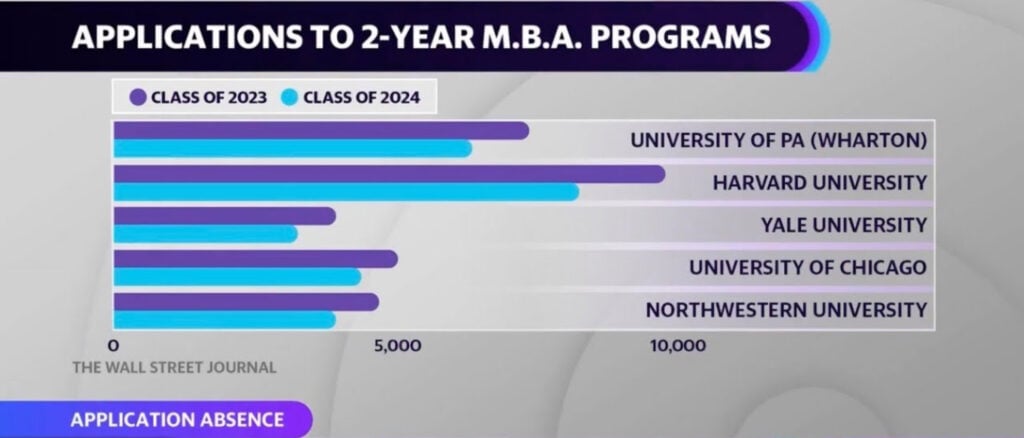
Top 2024 MBA Application Trends: Embracing Sustainability and AI Innovations
Are you considering applying for an MBA in 2024? It’s an exciting time to embark on this journey! As business schools constantly adapt to the
GMAT/GRE Test PREP & MBA ADMISSIONS


Are you considering applying for an MBA in 2024? It’s an exciting time to embark on this journey! As business schools constantly adapt to the

Are you wondering if pursuing an MBA is the right choice for your career? You’re not alone. Many professionals grapple with this decision, weighing the

Earning a Master of Business Administration, or MBA, is often seen as a ticket to success in the business world. An MBA can open doors

Imagine a world where business leaders are not just confined to traditional industries, but are spearheading innovations in technology, sustainability, and even social entrepreneurship. The MBA is evolving

In today’s fast-paced world, career advancement often requires more than just experience. You may find yourself contemplating an MBA to open doors to new opportunities, gain influential

1. Your Personal Priorities Choosing an MBA program is a significant decision that will impact you for years, not just months. Therefore, it’s crucial to

Envision taking a powerful leap towards success in the world of business, but you’re not sure where to start. The answer can often be found

If you’ve ever caught yourself inquisitively asking, “What exactly is an MBA?” then you are in the right place. More than just an acronym, an

Considerations about declining applications for American MBA programs

Average GMAT Scores for Top Business Schools